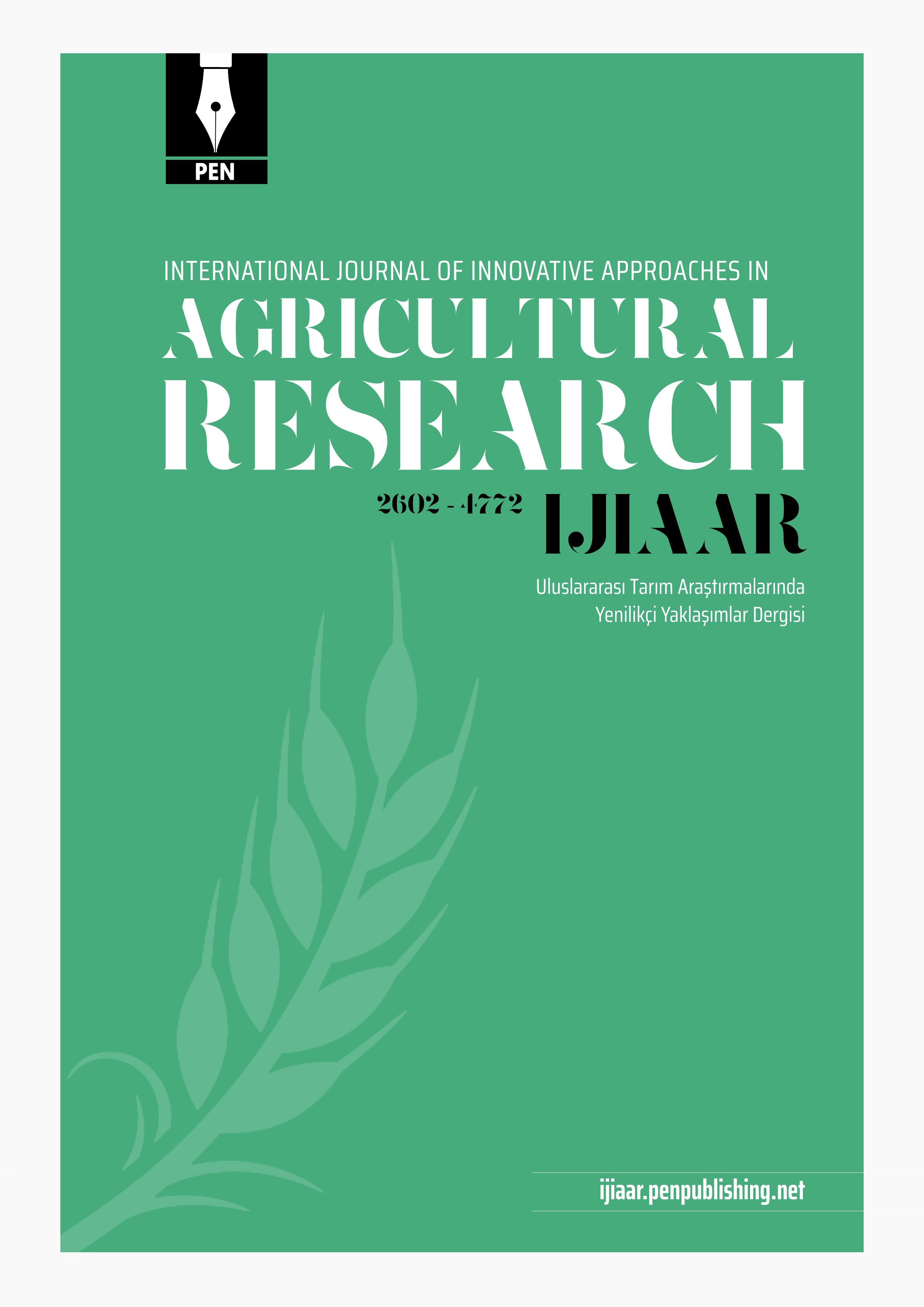
Uluslararası Tarım Araştırmalarında Yenilikçi Yaklaşımlar Dergisi
Yazarlar: Burçin Atılgan Türkmen
Konular:-
DOI:10.29329/ijiaar.2020.320.11
Anahtar Kelimeler:Renewable energy,Agriculture,Sustainability,Climate change
Özet: Sustainable agriculture means meeting current food needs without compromising the ability of current or future generations to meet their own needs. Energy is the most important tool for sustainable agricultural development and growth. The agri-food chain accounts for around 30 % of the global energy demand. The agricultural sector is currently heavily dependent on the use of fossil fuels. The use of fossil fuels in agriculture leads to an increase in greenhouse gas (GHG) emissions in the sector. The total GHG emissions from the agri-food chain account for more than 30 % of global GHG emissions per year. Emissions from energy used in agricultural activities consist primarily of CO2, CH4, and N2O. Current fossil fuel-based energy generation needs to be shifted to renewable energy such as solar, biomass, wind, and geothermal to mitigate climate change and reduce GHG emissions. There are a variety of energy-related mitigation and adaptation opportunities in agriculture. Improvements will be made by enhancing access to electricity, making more efficient use of resources, and increasing the use of renewable energy sources in agriculture. This would have the dual advantage of providing renewable energy inputs to agriculture, thereby increasing productivity, economic and social sustainability, and reducing climate change commitments. This paper details the role of renewable energy in agriculture by linking sustainability aspects.